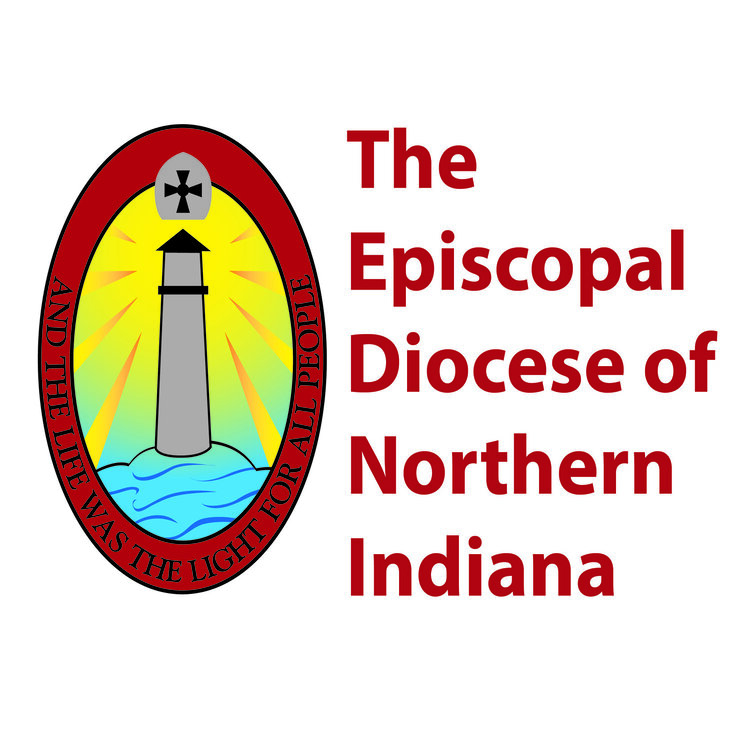The Northern Indiana School of Theology
The Northern Indiana School of Theology is now The Episcopal Diocese of Northern Indiana School for Faith and Ministry.
View our new webpage here.
The Northern Indiana School of Theology provides local formation opportunities for those who have discerned a call to either the diaconate or the priesthood. This page contains information about entering formal periods of discernment and postulancy, attending a traditional three-year seminary, and participating in local formation with the Northern Indiana School of Theology. For answers to more detailed questions, please contact the Missioner for Transitions and Formation, The Rev. Canon Terri Bays PhD.
Discernment
Those considering whether God is calling them into ordained ministry in the Episcopal Church engage not only in private prayer and meditation but also in a variety of communal processes. The first of these is a period of Discovery, in which the person discusses the possibility of a call with his or her local priest, the bishop and the Commission on Ministry. Those persons recommended by the Commission on Ministry enter into the second process, a formal period of Discernment in which the person (now called an Aspirant) meets regularly with a Parish Discernment Group. The task of the Parish Discernment Group (PDG) is to offer encouragement, counsel and raise issues and themes of ministry for discussion with the nominee. To learn more about entering a formal period of discernment to holy orders, please consult Ordination Guidelines: Diaconate or Ordination Guidelines: Priesthood.
Postulancy
As an aspirant's period of discernment concludes, a parish discernment group may nominate for Postulancy, the next step in the ordination process. Nominees undergo a variety of evaluations. They also complete and submit several forms provided by the Missioner for Transitions and Formation. After further interviews with the bishop and the Commission on Ministry, an aspirant may be approved as a Postulant and begin preparations for seminary or local formation.
Attending a Seminary
Attending seminary is the customary means of academic and spiritual formation for the priesthood and (less commonly) the diaconate. During consideration for Postulancy, the nominee will discuss various possibilities for formation the local priest, the Commission of Ministry, and the Bishop. Taking into consideration such factors as the academic character of the nominee, the type of ministry envisioned and family mobility, the Bishop makes the final decision about formation, whether in the Northern Indiana School of Theology, in a blended learning environment or at a residential seminary. Blended learning (residential/online) options are available through Bexley Seabury Seminary in Chicago, The School of Theology at the University of the South [Sewanee], and Virginia Theological Seminary. Residential Seminaries for consideration include The School of Theology at the University of the South [Sewanee], Virginia Theological Seminary, Berkeley Divinity School at Yale, and the Duke Divinity School, which includes an Anglican Episcopal House of Studies.
December sunset over Lake Wawasee, site of local formation gatherings. Photo by permission of Melissa Renner.
Local Formation
Postulants needing to maintain local residency and full time employment (this will include most postulants for the diaconate) may be assigned by the bishop for study in the Northern Indiana School of Theology. Those who receive their academic formation in this way will receive spiritual and practical formation through participation in meetings of the local Formation Group.
In addition to completing written coursework and attending local formation meetings, those in Local Formation also participate in three Colloquy Weekends a year.
A Prayer for All Christians in their Vocation
Almighty and everlasting God, by whose Spirit the whole body of your faithful people is governed and sanctified: Receive our supplications and prayers, which we offer before you for all members of your holy Church, that in their vocation and ministry they may truly and devoutly serve you; through our Lord and Savior Jesus Christ, who lives and reigns with you, in the unity of the Holy Spirit, one God, now and for ever. Amen. —Book of Common Prayer, p. 256

